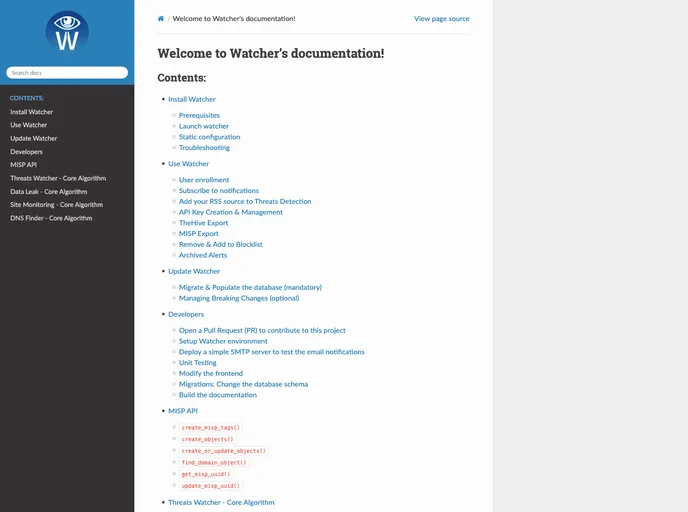Watcher - Open Source AI-powered Cyber Threat Intelligence & Hunting Platform. Developed with Django & React JS.
Overview
Watcher is an innovative automated platform built with Django and React JS, designed specifically for organizations to discover emerging cybersecurity threats. With its deployment capability on web servers via Docker, it provides a seamless experience for monitoring potential dangers to your organization. Watcher excels in real-time threat intelligence, enabling companies to stay ahead of malicious actors by keeping an eye on the latest cybersecurity trends.
This platform offers a variety of tools for detecting vulnerabilities, malware, and information leaks, bringing together several advanced features that cater to security needs. With its user-friendly interface and comprehensive monitoring capabilities, Watcher is a must-have for anyone serious about protecting their organization against cyber threats.
Features
- Threat Detection: Efficiently monitors and identifies emerging cybersecurity trends, helping organizations stay informed about new vulnerabilities and malware.
- Information Leak Monitoring: Tracks potential data leaks on various platforms like Pastebin and other IT content exchange websites, ensuring sensitive information remains secure.
- Malicious Domain Monitoring: Observes changes in malicious domain names, alerting users to shifts in IPs, mail records, and web pages.
- Suspicious Domain Detection: Utilizes the dnstwist algorithm to identify potentially harmful domain names that may pose a risk to your organization.
- Integration with Security Platforms: Seamlessly export Indicators of Compromise (IOCs) to TheHive and MISP, facilitating better threat management.
- User Management: Provides a robust admin interface for managing users and groups, complete with logs for usage tracking and configuration management.
- Email Notifications: Keeps users informed about critical updates and alerts through an automated email notification system.
- Active Community Contribution: Encourages users to engage with the platform by reporting bugs, suggesting features, or creating pull requests, fostering a collaborative development environment.
